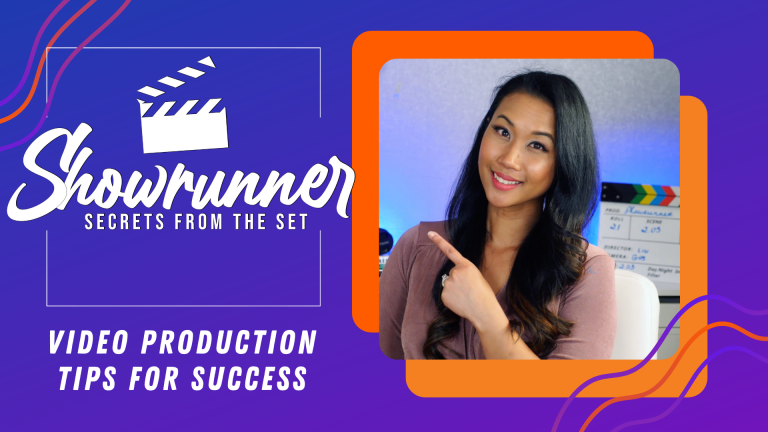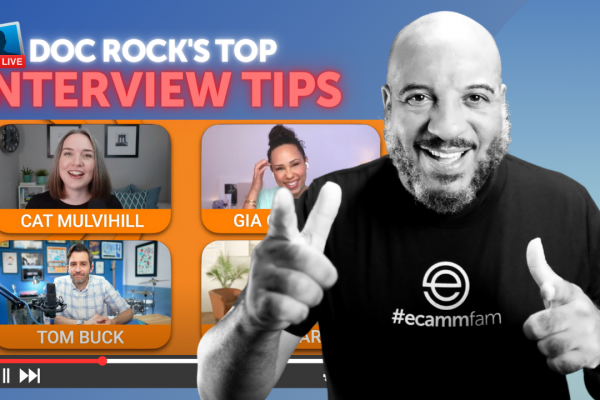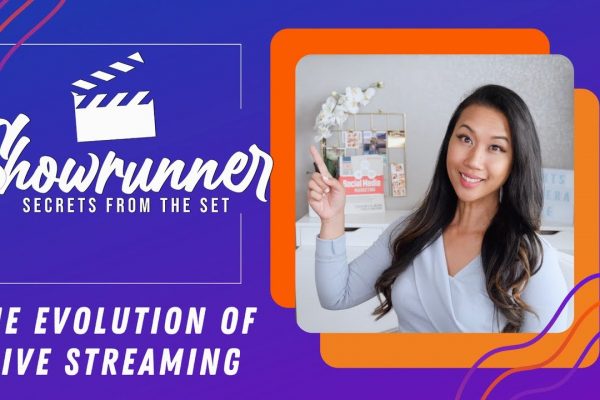Are you a live streamer or content creator? If you’re nodding yes, then you have a special set of skills that are desirable to businesses and brands. As more and more companies jump into the world of live streaming and video production, you have an amazing opportunity to expand your services and become a video producer or remote live producer.
In the mini-series Showrunner: Secrets from the Set, Stephanie Liu walked through how she became a live video producer and answered all of your questions about how to go from live streamer to live producer.
We asked Stephanie to share her top takeaways from Showrunner so that you can grab the key points you need to know before diving into the world of video production.
Stephanie’s Top 8 Tips for Video Producers
#1 – Be strategic and have a plan
You should go into every client call with a clear plan in mind. Have a designed bio and creative brief that you can share during your call. Make sure you know and can clearly articulate what services you offer, what that includes, what you bring to the table, and how you can help your clients achieve their goals.
#2 – Ask lots of questions
This may seem obvious, but always have questions for your clients. Write down your questions in advance in a checklist so that you don’t miss anything important that you’ll need to know later.
#3 – Create storyboards and SHARE them in advance
Go through the entire run of show and create visual storyboards that you can share with your clients in advance so they have a great understanding of how the show is going to look and feel.
Remember: most clients don’t know what they don’t know. This step will help give them confidence and prompt them to share ideas and concerns before the show happens.
#4 – Checklists are so important!
Communication is key. Put all of the FAQs and important information into a pre-show checklist and send this checklist to your client and the talent in advance so that everyone knows what software your using, the run of show, interview links to join in, gear requirements, internet requirements, and more.
#5 – Know your worth
Create a pricing spreadsheet or calculator. Include team members, their skill set, and their hourly rates. This way you can easily price out a project by knowing what you and your team are bringing to the table.
#6 – Don’t forget post production
Exceeding expectations on the live event is obviously important, but don’t forget about post production. There are many ways to repurpose live videos, including clipping videos to use for social posts and ads, turning the transcripts into a blog post, or using the audio for a podcast. You can add repurposing the live event or production as a service to help you clients get the most reach from their video.
#7 – Soft skills are as important as gear
Knowing how to make a guest or speaker feel comfortable on camera and hosting practice sessions can help you get the best out of the talent. Spending this time is as important as testing out all of your gear in advance.
#8 – Have backups on backups
Whether you’re in a studio or at an event, it’s so incredibly important to have a plan A, plan B, plan C, plan D… etc. Make sure you’re thinking through every possible thing that can go wrong from the internet going out (have a back-up!) to the talent not showing up. Put your backup plans into writing so you can reference them and everyone knows what to do if and when things go wrong.
Want to learn more about how to be a live video producer? Watch Showrunner: Secrets from the Set with Stephanie Liu today.





